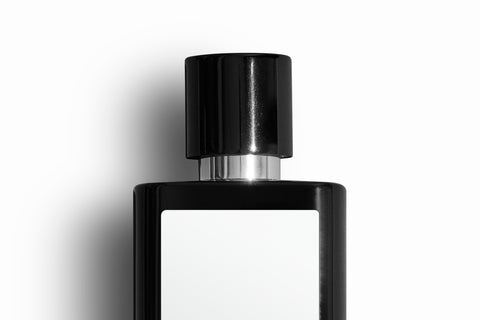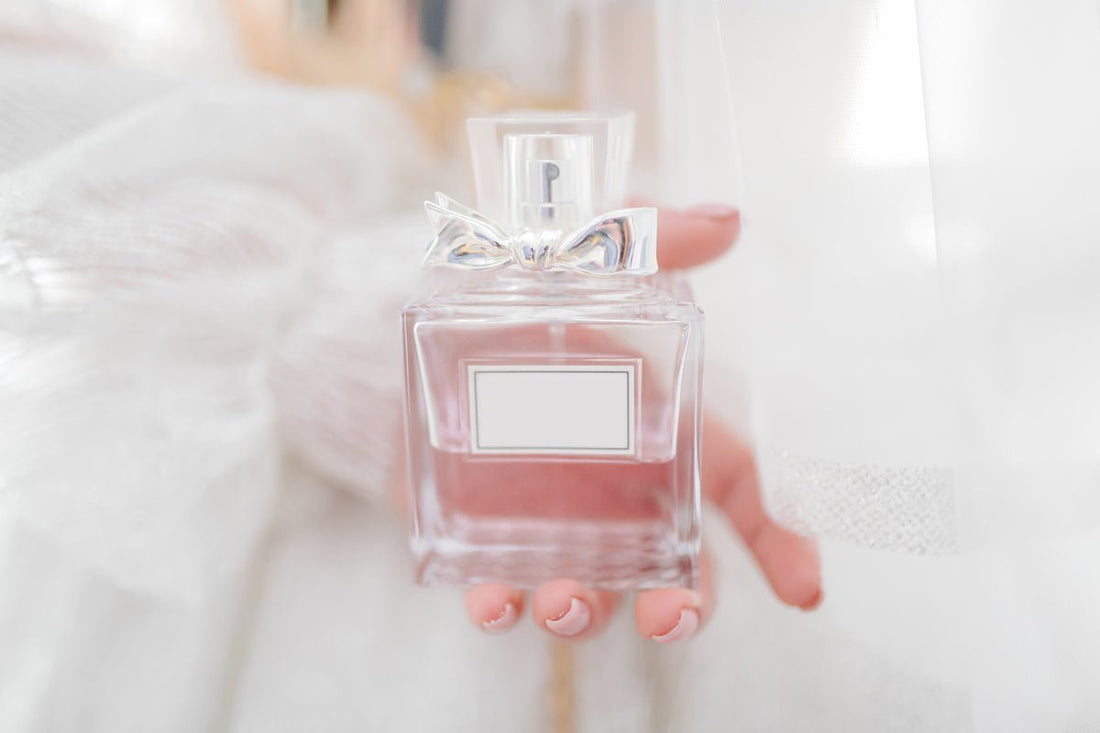A cloud of jasmine and vanilla lingers in the air, a fragrant memory of a summer night spent under a canopy of stars. This evocative power of scent is unlike any other sense. Unlike sight or sound, scent bypasses the thalamus and travels directly to the limbic system, the brain's emotional center, triggering vivid memories and a kaleidoscope of feelings. From the use of pheromones in ancient Egypt to the complex fragrance families of modern perfumery (think: floral, oriental, citrus), humans have been captivated by scent for millennia. This fascination goes far beyond the pleasant smell; it's about the psychological impact on mood and memory, the emotional connection to cherished experiences, the social cues we communicate with a spritz, and the artistry behind creating these olfactory masterpieces. In essence, perfume is more than just fragrance; it's a powerful tool for self-expression, memory preservation, and connection with the world around us.

The Psychological Impact of Perfume
Mood and Memory: A Powerful Sensory Shortcut
Our sense of smell has a unique and powerful connection to our memory and emotional centers. Unlike other senses that relay information through the thalamus, olfactory signals travel directly to the limbic system, the part of the brain responsible for emotions, memory, and instinct. This explains why a whiff of a particular scent can instantly transport you back in time, triggering vivid memories and the emotions associated with them.
- Proustian Moments: Marcel Proust, the famous French novelist, famously captured this phenomenon in his book "Swann's Way," where the taste of a madeleine dipped in tea triggers a flood of childhood memories. Similarly, a specific perfume can evoke memories of a loved one, a cherished vacation, or a significant life event.
- Emotional Alchemy: Perfumes can be used strategically to cultivate specific moods. Citrus scents like lemon or grapefruit are often associated with feelings of alertness and energy, while lavender and chamomile are known for their calming and relaxing properties. Spicy notes like cinnamon or clove can evoke feelings of warmth and sensuality, while floral scents like rose or jasmine can create feelings of romance and femininity.
- Olfactory Memory: Shaping Preferences: Our early olfactory experiences can have a profound impact on our fragrance preferences in adulthood. For example, the comforting scent of baby powder might evoke feelings of security and lead someone to gravitate towards perfumes with powdery notes. Conversely, a negative association with a particular scent, like a disliked cologne worn by a parent, might lead to a lifelong aversion.
Confidence and Identity: Scents as a Silent Expression
Perfume can be a powerful tool for boosting self-esteem and creating a sense of personal identity. The act of applying a favorite fragrance can be a form of self-care, a ritual that prepares us to face the day with confidence.
- Signature Scents: Many people develop a signature scent, a fragrance that becomes synonymous with their personality. This signature scent can become an extension of oneself, a way to communicate personal style and preferences without saying a word. Wearing a familiar and well-loved perfume can create a sense of comfort and security, a feeling of being "put together" and ready to take on the world.
- The Psychology of Scent: The psychological effect of feeling good about the way you smell is not to be underestimated. Studies have shown that a pleasant scent can boost self-confidence and even improve cognitive performance. Feeling good about our body odor can translate into a more positive self-image and a more outgoing demeanor.
Aromatherapy and Wellbeing: Harnessing the Power of Scent
Aromatherapy, the practice of using essential oils for therapeutic purposes, has gained significant popularity in recent years. Essential oils are concentrated plant extracts containing volatile aromatic compounds that can be inhaled or applied topically to promote relaxation, stress relief, and improved well-being.
- Scents for Relaxation: Certain essential oils, such as lavender, chamomile, and bergamot, have been shown to have calming and sedative properties. These scents can be diffused in the air or diluted and applied topically to promote relaxation and better sleep.
- Stress Relief: Other essential oils, like rosemary and peppermint, are known for their invigorating and stimulating properties. These scents can be used to improve alertness and concentration, or to alleviate headaches and promote feelings of well-being.
- Scientific Exploration: While the scientific evidence for the therapeutic benefits of aromatherapy is still evolving, there is growing research to suggest that certain essential oils can have a positive impact on mood, anxiety, and even pain management.
Important Note: It's important to consult with a healthcare professional before using essential oils, especially if you are pregnant, breastfeeding, or have any underlying health conditions.

The Emotional Connection with Perfume: A Symphony of Scents and Sentiments
Perfume is more than just a pleasant smell; it's a multi-sensory experience that can evoke a wide range of emotions and forge powerful connections with our memories and cultural identities.
The Ritual of Fragrance: A Luxurious Indulgence
The act of applying perfume can be a luxurious and deeply satisfying ritual. It's a moment of self-care, a mindful pause in the day dedicated to pampering the senses.
- The Tactile Experience: The cool touch of the perfume bottle against the skin, the gentle spray mist, and the sensation of dabbing the fragrance onto pulse points are all elements that contribute to the overall sensory experience.
- The Olfactory Journey: As the perfume unfolds on the skin, a symphony of scents emerges. Top notes provide an initial burst of freshness, followed by the heart notes that reveal the true character of the fragrance. Finally, the base notes linger long after, creating a lasting impression.
- The Appreciation of Complexity: A well-crafted perfume is a complex composition, much like a piece of music. The ability to discern and appreciate the different layers of a fragrance, from the bright citrus top notes to the rich and woody base, adds another layer of enjoyment to the experience.
A Palette of Emotions: From Comfort to Seduction
The unique ability of scent to trigger emotions is what truly sets perfume apart. Specific aromas can evoke a wide range of feelings, from the comforting warmth of vanilla to the invigorating zest of citrus to the intoxicating allure of musk.
- Comfort and Security: Certain scents can evoke feelings of comfort and security, reminding us of cherished memories and loved ones. For example, the smell of vanilla might remind us of baking cookies with a parent, while the scent of lavender might evoke memories of a peaceful childhood bedtime routine.
- Sensuality and Attraction: Perfume has long been used as a tool for seduction and attraction. Certain scents, such as jasmine, rose, and sandalwood, are known for their aphrodisiac qualities, triggering feelings of desire and intimacy. The ability of perfume to influence our perception of others can play a significant role in romantic encounters.
- Eliciting Memories: A familiar scent can instantly transport us back in time, triggering a flood of emotions associated with a particular memory. The smell of freshly cut grass might evoke childhood summers spent playing outdoors, while the scent of a specific cologne could bring back memories of a first love.
Cultural Connections: A Fragrant Tapestry
Perfume is deeply intertwined with cultural traditions and practices around the world. Certain scents hold specific meanings and significance in different cultures, reflecting religious beliefs, social customs, and historical practices.
- India and Incense: In India, the burning of incense plays a vital role in religious ceremonies and daily life. The use of fragrances like sandalwood and agarwood is believed to promote spiritual purification and create a sense of peace and tranquility.
- The Fragrant Significance of Flowers: Flowers play a major role in perfume-making, and specific floral scents hold cultural significance in various regions. In China, the delicate fragrance of jasmine is associated with purity and beauty, while the heady scent of rose is often linked to romantic love and passion in Western cultures.
- Seasonal Scents and Traditions: Many cultures associate specific scents with different seasons and holidays. The warm, spicy notes of cinnamon and cloves might be used to create a cozy atmosphere during winter holidays, while the fresh, floral scent of lilies might be associated with spring celebrations.
Understanding the cultural associations of different scents can provide a deeper appreciation for the diverse world of perfumery and its ability to connect us to different traditions and communities.

The Social Aspects of Perfume: A Fragrant Conversation
Perfume isn't just a personal indulgence; it's a powerful tool for non-verbal communication, shaping how we interact with and perceive others. From influencing first impressions to creating a personal brand, scent plays a subtle yet significant role in our social lives.
The Language of Scent: A Silent Message
Our sense of smell operates on a subconscious level, sending silent messages that can significantly impact first impressions and social interactions.
- Scent as a First Impression: The first whiff of someone's perfume can leave a lasting impression, influencing our initial perception of their personality, professionalism, and even social status. A clean, fresh scent might convey a sense of competence and approachability, while a strong, musky fragrance might project confidence and assertiveness. It's important to be mindful of the message your perfume is sending, especially in professional settings.
- Social Navigation: Scents can also play a role in social navigation, helping us to navigate social situations and build rapport with others. For example, wearing a perfume with familiar, comforting notes like vanilla or lavender might put others at ease and create a more inviting atmosphere. Conversely, wearing a strong, overpowering fragrance might send the message that you're not interested in being approached.
The Signature Scent: A Fragrant Brand Identity
Just like our clothing choices, our perfume can become an extension of our personal brand, a fragrant signature that communicates our sense of style and identity.
- Olfactive Identity: A signature scent can become synonymous with a person, a unique olfactory identifier that sets them apart and leaves a lasting memory.
- Professional Scentscape: While personal preference plays a role, the choice of perfume in professional settings can have an impact on how you are perceived. Certain fragrances are considered more appropriate for the workplace than others. Opting for clean, professional scents that project confidence and competence can be beneficial, while overly strong or distracting fragrances might be best left for personal occasions.
The Power of Olfactory Memory: A Double-Edged Sword
Our sense of smell is intricately linked to memory, and a familiar scent can instantly trigger memories of specific people or places, with all the associated emotions. This can have both positive and negative consequences in social interactions.
- Positive Associations: The familiar scent of a childhood friend's perfume might evoke feelings of warmth and nostalgia, creating an instant connection and facilitating a positive social interaction.
- Negative Memories: Conversely, a scent associated with a negative experience, like a bad date or a stressful work environment, might trigger unpleasant memories and create an awkward social atmosphere. Being mindful of these potential associations is crucial when choosing a perfume for specific social situations.
By understanding the social aspects of perfume, we can utilize its power to create positive first impressions, build rapport with others, and solidify our personal brand. It's a subtle art form, but one that can significantly enhance our social interactions and the way we navigate the world.

The Art and Creativity of Perfumery: A Symphony of Scents
Perfume creation is more than just mixing fragrant ingredients; it's an art form requiring immense skill, creativity, and a deep understanding of olfactory science.
The Perfumer: A Maestro of Molecules
The perfumer, often referred to as a "nose," is the visionary artist behind every captivating fragrance. They possess a unique combination of scientific knowledge and artistic flair, meticulously blending ingredients to create olfactory masterpieces.
- The Path of a Perfumer: Becoming a perfumer is a rigorous journey that often requires years of training and apprenticeship under experienced noses. Perfumers need a strong foundation in chemistry, understanding the properties of different essential oils and synthetic aroma compounds. They also need a highly developed sense of smell, the ability to distinguish subtle nuances between scents, and a keen imagination to translate olfactory concepts into reality.
- The Art of Blending: The artistry of a perfumer lies in their ability to combine a multitude of ingredients to create a harmonious and captivating fragrance. Just like a painter mixes colors to create a masterpiece, a perfumer blends different notes to achieve a desired olfactory effect. This involves careful consideration of the balance between top, heart, and base notes, as well as the creation of fragrance accords – specific combinations of ingredients that create a unique scent profile.
The Olfactory Orchestra: A Harmony of Notes
To understand the artistry of perfumery, it's crucial to delve into the concept of fragrance notes. These notes categorize scents based on their volatility and how long they last on the skin.
- The Ephemeral Top Notes: Top notes are the first impression of a fragrance, light and fleeting scents that evaporate quickly. They are often composed of citrus oils, fruity accords, or fresh, herbal notes, providing an initial burst of freshness and intrigue.
- The Heart of the Fragrance: Heart notes form the core of a perfume, emerging after the top notes have faded. These notes typically consist of floral scents, spicy accords, or woody notes, and they define the true character of the fragrance.
- The Lingering Base Notes: Base notes provide depth and richness to a perfume, anchoring the scent and ensuring it lasts throughout the day. Base notes are typically composed of musks, amber accords, or woody notes, and they create a lasting impression on the wearer and those around them.
Creating a harmonious fragrance requires careful consideration of how these notes will interact. A skilled perfumer understands how different notes will evolve over time, ensuring a smooth transition between top, heart, and base notes. They may also employ fragrance accords, pre-blended combinations of ingredients that offer a specific scent profile, to add complexity and intrigue to their creations.
A Modern Olfactory Landscape: Sustainability and Niche Scents
The world of perfumery is constantly evolving, with new trends and practices emerging to reflect the changing desires of consumers.
- Sustainable Scents: There's a growing emphasis on sustainability in perfumery, with an increased focus on ethically sourced ingredients and environmentally friendly production practices. Perfumers are exploring the use of recycled materials for packaging and utilizing natural, renewable ingredients whenever possible.
- The Rise of Niche Fragrances: Niche perfumery is experiencing a renaissance, with independent perfumers creating unique, handcrafted fragrances that cater to a discerning clientele. These niche fragrances often focus on high-quality, natural ingredients and innovative scent profiles, offering a departure from mainstream commercial perfumes.
- A Return to Artisan Craftsmanship: There's a renewed appreciation for artisanal craftsmanship in perfumery, with a growing interest in small-batch, hand-blended fragrances. These artisanal perfumes offer a sense of exclusivity and authenticity, appealing to those who seek unique and personalized olfactory experiences.
The future of perfumery is filled with exciting possibilities, with perfumers continuously pushing the boundaries of creativity and innovation. As science and technology evolve, so too will the art of fragrance creation, offering new avenues for olfactory exploration and artistic expression.
Conclusion
Our love affair with perfume goes deeper than a pleasant scent. It touches our psychology, boosting mood, memory, and confidence. A spritz can unlock a flood of emotions through its luxurious application and cultural associations. It becomes a tool for non-verbal communication, shaping first impressions and personal branding. But perfume's allure transcends mere utility. It's a canvas for self-expression, a fragrant reminder of cherished memories, and a bridge to connect with others on a deeper level. Each spritz can transport us across cultures and through time, a testament to the enduring power of scent to weave its magic on our senses and souls. Perhaps, it's the closest we come to bottling a memory, a feeling, or a dream.

